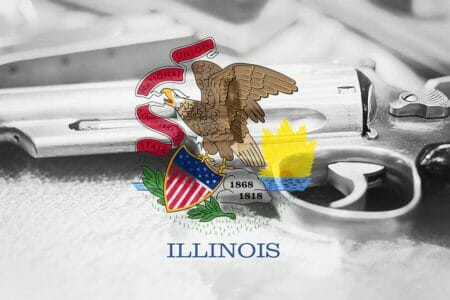The recent decision by the United States Court of Appeals for the Third Circuit has sent ripples through the anti-gun community. This court, covering Delaware, Pennsylvania, and New Jersey, has called for supplemental briefing in the landmark case of Range v. ATF/Garland. This case revolves around 18 USC 922(g)(1), which concerns the disarmament of individuals convicted of felonies, even if they are non-violent. Let’s explain why this is such a big deal for Second Amendment supporters.
Understanding the Case
The central figure in this case is Brian Range, who was convicted of a non-violent felony related to welfare fraud two decades ago. Under current federal law, anyone convicted of a felony—violent or not—is prohibited from owning firearms for life. The controversy lies in the broad definition of a “felony,” which can include crimes that don’t involve violence or harm to others.
The Court’s Stance
The Third Circuit had previously ruled that non-violent felons should not lose their Second Amendment rights. They emphasized that historical regulations only disarmed individuals who posed a physical threat to themselves or others. This view aligns with a commonsense understanding of public safety: disarm those who are dangerous, not those who made a mistake without causing harm.
The Importance of the Rahimi Decision
The Supreme Court’s recent Rahimi decision is crucial here. It reaffirms that only those who are violent threats can be disarmed under the Second Amendment. The Third Circuit is now reviewing the Range case in light of Rahimi, but there is little in Rahimi that contradicts their earlier decision. This means the court is likely to reaffirm that non-violent felons, like Brian Range, cannot be stripped of their gun rights for life.
Why This Matters
If the Third Circuit stands by its initial ruling, it sets a significant precedent. It means that non-violent felons across the nation could regain their right to bear arms. This is a huge victory for gun rights advocates who argue that the current laws are overly punitive and do not serve public safety.
The Bigger Picture
Attorney General Merrick Garland is expected to seek Supreme Court review if the Third Circuit reaffirms its decision. This could bring the issue back to the Supreme Court in the 2024-2025 term, providing a definitive ruling on this matter.
What’s Next?
The Court has ordered that supplemental briefs be filed within 21 days so we can expect developments by early August 2024. The final decision could come as early as September, and it is likely to spark further debates and legal challenges.
Non-Violent Felons Reclaiming Their Second Amendment Rights
The Range v. ATF/Garland case is pivotal in the fight for gun rights. As the legal landscape continues to evolve, it’s crucial for gun owners to stay informed and active in supporting their rights. The next few months will be critical in determining whether non-violent felons can reclaim their Second Amendment rights. Let’s hope for a decision that upholds the principles of justice and the Constitution.
Read Related: The Ridiculous Nature Of Modern Felonies ~ We’re All Felons Now!
For more updates on this case and other Second Amendment news, follow Mark Smith on YouTube and subscribe to our AmmoLand News newsletter. Stay vigilant and informed!
Range v. ATF/Garland







GovCo has added a “felony” aspect to so many “crimes” in an effort to keep as many citizens disarmed as possible. Then you have these little gems like The Lautenberg Amendment, that add even more people to the “disarmed for life” list. As much as it may go against my first thoughts on the matter, I do now believe once someone has served their time, completed their probation or parole, and paid their debt to society, their gun rights should be restored, along with the others. This even if their crime was deemed “violent”. GovCo gets creative with wording in… Read more »
If the sticking point is violent vs. non-violent, United States v. Davis in 2019 will be relevant here. Gorsuch actually joined the “wise Latina” and co in striking down sentencing enhancements for violent crime because he deemed “crime of violence” too undefined and vague (so a defined list of murder, assault, armed robbery and so on would presumably pass scrutiny), while Kavanaugh supported its existence not because it was consistent with the Supreme Law, but because he liked the supposed good impact gun control had had.
I believe in the principle behind “Broken Glass” policing. The idea that petty crimes often lead down the path to grander criminal behavior. Someone today, commits a non-violent felony, if not curtailed could become a violent criminal if given a chance. How many times do we have to release non-violent criminals who upon their release turn around and murder someone? Does that mean that everyone will do the same, no. But, it pays to mention that there are no absolutes. We don’t live in a black and white reality, but in one of limitless shades of gray, and we can’t… Read more »
Tax fraud is a federal felony. It is also not a crime worthy of permanently losing one’s civil rights, nor is it a “gateway” crime. There’s a level of absolutism to the first part of your argument which doesn’t conform to reality. While the last part has some merit, I think that’s also a case of parole…if a felon serves their time with no violations, etc., both while in custody and on parole if that’s a part of their sentence, then they should get all civil liberties restored.